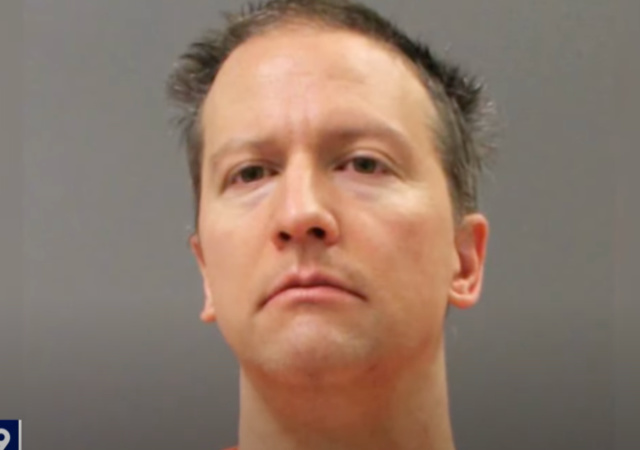SCOTUS Refused to Consider Derek Chauvin’s Appeal for New Trial in George Floyd Death

The Supreme Court, without comment, rejected to hear former Minneapolis police officer Derek Chauvin’s appeal for a new trial.
Chauvin claimed the Minnesota state courts did not give him a fair trial, thus denying him the right to a fair trial that the Sixth Amendment protects.
The state charged Chauvin with the death of George Floyd in May 2020. The death led to many destructive and fiery riots across the nation.
A jury found Chauvin guilty of second and third-degree murder in August 2021. He received 22 1/2 years.
Chauvin’s attorneys mentioned “the new military-style fortification of the courthouse” and Minneapolis. They insisted the security and attention raised the concern for the jurists, which in turn, pressured them to convict Chauvin “lest they, their families, and their community face further violence.”
The attorneys added that Chauvin “was, in essence, tried by a jury under the menacing eye of a violent mob demanding conviction.”
The attorneys slammed the state courts, especially their reasoning, for ignoring potential harm to the jurors and the city and how the attention could prejudice the pool:
The trial court and the Minnesota Court of Appeals should have presumed that this potent threat of harm to the jurors and the community prejudiced the jury pool. But in considering the motion to transfer, the district court focused on the publicity surrounding Mr. Floyd’s death and the trial. Repeatedly noting the district court’s “wide discretion” in this regard, the Minnesota Court of Appeals remarkably added that other cases “involved circumstances more extreme than those in [Petitioner’s] trial.” This is not only absurd, but the lower courts wholly failed to consider the palpable threat of harm to the jurors, their families, and their community from a “not guilty” verdict. It is now an unfortunate given that every police-involved critical incident is immediately criticized by significant segments of American society—regardless of the facts. Under these extreme circumstances, the failure to transfer the trial to less dangerous venue denied Petitioner his Sixth Amendment right to a fair trial.
It does not take a lawyer or law student to know that Chauvin did not receive a fair trial.
Chauvin did not get a fair trial. Professor Jacobson wrote:
I wrote near the end of the trial that there was evidence that Chauvin kept the pressure on Floyd too long, even after he was subdued, handcuffed, and unconscious, and that could provide a basis for conviction. It is possible that someone was guilty of a crime, but also did not receive a constitutionally required fair trial. This is such a case.
CLICK HERE FOR FULL VERSION OF THIS STORY